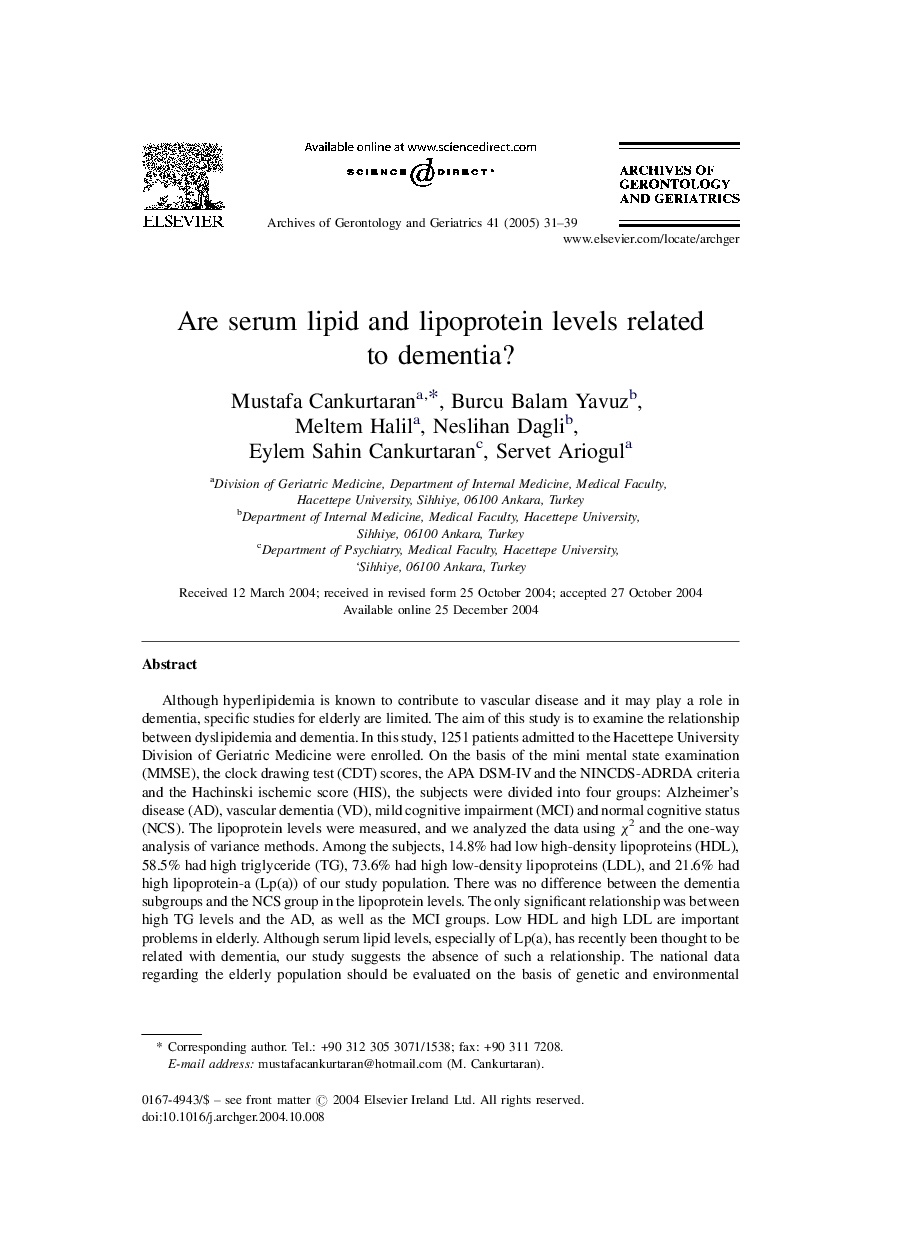| Article ID | Journal | Published Year | Pages | File Type |
|---|---|---|---|---|
| 9878907 | Archives of Gerontology and Geriatrics | 2005 | 9 Pages |
Abstract
Although hyperlipidemia is known to contribute to vascular disease and it may play a role in dementia, specific studies for elderly are limited. The aim of this study is to examine the relationship between dyslipidemia and dementia. In this study, 1251 patients admitted to the Hacettepe University Division of Geriatric Medicine were enrolled. On the basis of the mini mental state examination (MMSE), the clock drawing test (CDT) scores, the APA DSM-IV and the NINCDS-ADRDA criteria and the Hachinski ischemic score (HIS), the subjects were divided into four groups: Alzheimer's disease (AD), vascular dementia (VD), mild cognitive impairment (MCI) and normal cognitive status (NCS). The lipoprotein levels were measured, and we analyzed the data using Ï2 and the one-way analysis of variance methods. Among the subjects, 14.8% had low high-density lipoproteins (HDL), 58.5% had high triglyceride (TG), 73.6% had high low-density lipoproteins (LDL), and 21.6% had high lipoprotein-a (Lp(a)) of our study population. There was no difference between the dementia subgroups and the NCS group in the lipoprotein levels. The only significant relationship was between high TG levels and the AD, as well as the MCI groups. Low HDL and high LDL are important problems in elderly. Although serum lipid levels, especially of Lp(a), has recently been thought to be related with dementia, our study suggests the absence of such a relationship. The national data regarding the elderly population should be evaluated on the basis of genetic and environmental factors in each country. The present study showing no significant relationship between Lp(a) and the cognitive status adds new information to the available literature.
Keywords
Related Topics
Life Sciences
Biochemistry, Genetics and Molecular Biology
Ageing
Authors
Mustafa Cankurtaran, Burcu Balam Yavuz, Meltem Halil, Neslihan Dagli, Eylem Sahin Cankurtaran, Servet Ariogul,
